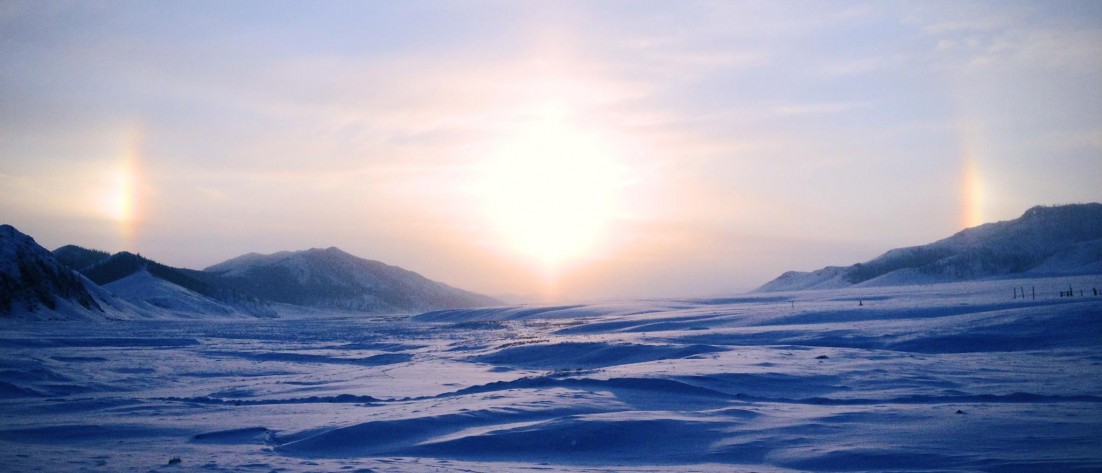I. Gambir
I spent the three days before my birthday at Stepperiders, a tourist-oriented horse camp about 45 minutes outside UB. I’d stayed with them for one night last fall and done a couple of trail-less trail rides (steppe rides?), but this time, I wanted something with a greater sense of purpose. I signed on for a three day/two night trek, which brought us back to their base camp the night before my birthday.
As the volunteers and I sat playing cards after dinner that evening, my guide surprised us with an improvised cake: gambir slathered with off-brand Nutella, upon which the words “happy 24” had been carefully inscribed with jelly. The two candles present being our sole source of light, I’d nothing to wish upon, but they sang me “happy birthday” nonetheless.
The staff joined us for cake and airag and whisky and cards, and when they left, we sprawled across our beds and challenged each other to imitate horses in various human situations: wedding speech-giver, air traffic controller, zumba instructor, rap artist, first horse on the moon. The game left us paralyzed with giggles and wondering when someone would come to investigate the source of the hullabaloo. But no one did, and so we carried on until the last candle flickered out and left us to drift contentedly off to sleep.
II. Pizza
I arrived back in Erdenet in the late afternoon – too late to assemble the potluck I would have liked to, but plenty early enough to assemble at Marco’s Pizza. Marco is an Italian expat with more generosity than business sense who tired of his job at the Ministry of Agriculture in Rome. “I thought, ‘this is not life,'” he says of the decision that brought him to Mongolia, where he now runs a pizzeria with his Mongolian wife, Gerlee. His is the restaurant most requested by friends visiting from the countryside, and with good reason. Marco has always treated the Greater Erdenet Area Peace Corps/Fulbright community and has on many occasions closed early to privately host our birthday celebrations, going-away parties, and even an early Christmas dinner.
The pizzas take forever because there’s only one oven, but Marco brought us a plate of the day’s leftover pasta as an appetizer. The two large pizzas – one bacon, one chicken – were delicious as always and cost us a mere six thousand tugriks per person (about $4). The Nutella pizza he brought us after we’d finished, as he always does on on such occasions, was free. We’ve protested on previous occasions, saying that he’ll put himself out of business with such generosity, but he says only that his business “is a trattoria, not a ristorante” and refuses all offers of payment for the extra food. And he sings us “happy birthday” on the appropriate days, even if it’s already been sung.
III. Tradition
For as long as I can remember, I have had the same cake at every birthday. The friends who attempt, in the days before my birthday, to discreetly discern my favorite kind of cake are always frustrated when I tell them it’s not something you can buy in stores. It’s a granny smith apple cake, full of spices and not overly sweet, whose recipe my grandmother must have clipped from some long-ago newspaper.
It’s supposed to be made in a bundt pan, an instrument I always deemed unnecessary when packing for college but whose absence left me unsure how to adjust the baking time and temperature of the old recipe. Questions to friends about how they might attempt such an adjustment have, on two separate occasions, led me to receive a bundt pan as a birthday gift. I still don’t really know how to adjust the recipe, though I do know that the use of a bundt pan means that, in the absence of proper birthday candles, a jar candle can be substituted, a la the “I fixed it!” moment in My Big Fat Greek Wedding.
I did not have a bundt pan on this occasion, but I was determined to follow tradition nonetheless. My first stop upon arriving in the city was to pick up apples from the discount shelf at the fruit delguur favored by the Russians (and, for that matter, Americans). I knew that, when baked, they’d taste every bit as good as the absurdly priced bright green ones in the main display.
I was right. The cake took forever to bake in the toaster oven but filled the entire apartment with a delicious aroma, and when when sliced it up later that night, everyone agreed it was delicious.
IV. The Generosity of Friends
Although my host knew of my birthday cake tradition, having allowed me the use of her oven to bake one the year before, it seems neither she nor the others knew of my intent to continue it this year. Upon arriving at another friend’s apartment after dinner, I found that they had purchased another cake for me, a standard white cake with large frosting roses.
I’m not a particular fan of frosting, and Mongolian cakes have a very hit-or-miss reputation, but when they dimmed the lights to bring out the cake and its single flickering candle for a third chorus of “happy birthday,” I still found myself ducking my head and grinning ridiculously. It wasn’t the taste of the cake or the excess of frosting that mattered, but the presence of friends new and old, people who wished me well whether I’d been part of their lives for a day or a year.
As we settled to the floor for a game of Cards Against Humanity, stuffed to groaning with cake and good humor, I was grateful for the friendship and generosity of those around me. Even here, a world away from the people and places I know and love, I am truly blessed.
And not just with cake.






